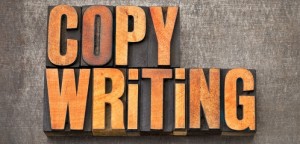“Reading has always been an important part of my success and happiness. I am not unusual in that regard. Most of the most accomplished men and women of our time credit a good part of their success to reading.” – Mark Ford
A Confidence Booster From the King
“Long live the King,” hailed Entertainment Weekly when this book was published in 2000. No, not that King (although I think every American should make a pilgrimage to Graceland).
Stephen King, the master storyteller from Bangor, Maine. Author of Carrie and Salem’s Lot (both written in the laundry room of a rented trailer), plus 47 other books that have sold over 350 million copies.
I snatched up King’s On Writing a few years ago on a recommendation from John Forde. I devoured it in one sitting and took notes on almost all 297 pages.
On Writing is Stephen King’s revealing inside look at when and how he started writing, what inspires him, and how he developed his style. More than anything, it’s a book about passion for the craft of writing.
I read On Writing a few years ago when I was getting started as a Barefoot Writer. It inspired me and motivated me like no other book has. It made me laugh and it made me cry. Above all, it gave me the confidence that I could be a successful writer.
When I read the last page, closed the book, and lodged it in a place of importance on my office bookshelf, I finally started calling myself a writer. I’ve never looked back, and I owe a debt of gratitude to Stephen King.
Wherever you are on your journey to the writer’s life, check out On Writing or the harder-to-find companion book, Secret Windows. You may just get a push from the King like I did.
Lessons From a Master Writer…
Even though he’s a bestselling fiction author and you and I are copywriters, you’ll find a lot of common ground and practical ideas to implement. To tell you the truth, I’m not even a fan of Stephen King. This is the only book of his I’ve ever read.
But I learned three important things that I use every day in my writing routine:
1. Establish a Clear-Cut Writing Schedule
For Stephen King, mornings are prime writing time. His goal is to write about 10 pages per day, about 2,000 words. That’s about a million words in a year and a half. Not bad.
His afternoons are for naps and letters, and evenings are for reading, family, and revisions that can’t wait (and Red Sox games on TV). I like his evening schedule, but I skip the naps and letters, and my goal is five pages by 8 a.m. (about 1,250 words in the font size I use) and anything I can get after that. For me, it’s all a labor of love.
And if you don’t like the idea of a traditional schedule, check out using an unschedule here.
2. Keep Vocabulary and Grammar Simple and the Style Conversational
Hey, could this guy be a closet copywriter? King says to avoid the passive tense, get rid of adverbs, use short paragraphs and lots of white space, and keep it all tight.
3. Read a Lot and Write a Lot
King says, “If you don’t have time to read, you don’t have the time (or the tools) to write. Simple as that.” He advocates reading and writing four to six hours a day, seven days a week.
And what should you write? Two ideas: 1) Readers want a good story – the best writers are good storytellers, and 2) Write what you like, but imbue it with life and make it unique. In other words, use your own natural voice.






